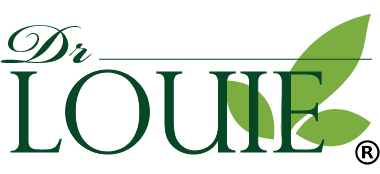
Do Skincare Products Stop Working After a While?
|
Time to read 4 min


|
Time to read 4 min
You find a serum, cream, or essence that transforms your skin. Within weeks, your face looks brighter, smoother, and healthier. But months later, you look in the mirror and wonder: “Is this still doing anything for me?”
This is one of the most common questions in skincare: Do products lose their effectiveness over time? The answer is more nuanced than a simple yes or no. Let’s unpack why your skincare results might seem to plateau — and what you can do about it.
First, let’s clear up a myth. Your skin doesn’t "build resistance" to active ingredients the way bacteria can resist antibiotics. If vitamin C brightened your complexion in the beginning, it doesn’t suddenly stop working on a cellular level. Retinol doesn’t “wear out” just because you’ve used it for six months.
So why do results sometimes feel less impressive? It often comes down to our own perception.
The Plateau Effect: When “New Skin” Becomes Your Normal
In the early weeks of using a new product, changes can feel dramatic. A brightening serum might fade dark spots, or a hydrating cream may calm redness. You see visible improvements quickly, and it feels exciting.
But once your skin reaches a healthier baseline, the product’s job shifts from transformation to maintenance. You may not notice subtle improvements anymore because you’ve gotten used to your “new normal.” In fact, the product is still working — it’s just preserving the gains you’ve already made.
Think of it like exercising: at first, the results are obvious, but later, the progress is steadier and harder to see. Same thing happens to our skincare as well.
Changing Skin, Changing Needs
And it's also important to note that your skin isn’t static. Hormonal shifts, stress, climate changes, diet, and even age alter what your skin needs. A moisturizer that felt perfect in the winter may feel heavy in the summer. A brightening serum might seem less impactful once your skin tone has evened out, but then suddenly feel essential again after a vacation in the sun.
Sometimes the issue isn’t that the product stopped working — it’s that your skin has moved on to a different set of concerns.
Lifestyle and Environmental Factors
External factors can also influence how well your skincare works:
Sun exposure: Without daily SPF, UV rays undo the benefits of anti-aging and brightening treatments.
Stress and sleep: Lack of rest increases cortisol, which weakens the skin barrier and leads to breakouts or dullness.
Diet: Too much sugar, alcohol, or processed food can trigger inflammation and overshadow product benefits.
If your lifestyle has shifted, the same product may no longer deliver the dramatic results it once did.
The Role of Consistency
And another factor that may be leading to this "plateau effect": sometimes results fade because we’re less consistent.
At the beginning, you may have applied a serum every night without fail. Months later, you might skip a few nights, forget sunscreen, or apply too little. Skincare works best when used regularly and at the correct dosage.
If you’re questioning a product’s effectiveness, ask yourself: Have I been using it as diligently as before?
So then, is there ever a time when it is time to change your product? Yes, there is! Your product CAN change. For example, certain active ingredients are notoriously unstable:
Vitamin C (L-ascorbic acid): Oxidizes quickly if exposed to light, air, or heat. Once it turns brown or orange, its potency has dropped.
Retinol: Breaks down with air and light exposure unless it’s in protective packaging.
Peptides: Can lose their structure over time if the formulation isn’t stabilized properly.
If you’ve had a product open for many months, it may genuinely be less effective. Look for products in opaque bottles, and clear expiration dates to ensure your skincare stays potent. (Click here to learn more about the best way to store your Vitamin C Serum, containing L-ascorbic Acid.)
A product like our Vitamin C Serum also gives you when it's manufactured AND bottled BEFORE you purchase to ensure its freshness because freshness does matter a lot when it comes to these actives!
While most of the time it’s about perception, there are cases where moving on makes sense. Consider switching if:
Your product has changed colour, smell, or texture (a sign it’s expired or oxidized).
Your skin concerns have shifted and the product no longer addresses them.
You’re experiencing irritation or new breakouts that weren’t there before.
If your skincare product checks off the above bullet points, you should consider rotating, switching or adding products. But how do we do that?
Introduce complementary actives. For example, pair vitamin C with niacinamide or with ingredients patented for skin brightening, such as Emblica(R), for extra brightening and hyperpigment-reducting or combine retinol with peptides for stronger anti-aging support.
Adjust with the seasons. Swap lighter formulas in summer for richer ones in winter. For example, if you were using our All-in-One Essence Oil-Free or All-in-One Essence Light, consider switching to All-in-One Essence for Dry Skin or consider adding Vitamin C Serum or other hydrating serum like our All-in-One Essence Oil-Free.
Address new concerns. If dryness, sensitivity, or pigmentation has become your main issue, shift your focus accordingly. For example, if you were focused on hydration but are noticing dull skin tone with hyperpigment after the summer sun, consider adding Vitamin C Serum in your routine.
Just be careful not to overload your routine. Too many actives can cause irritation and undo your progress.
Another important thing to note is that part of skincare success is knowing what to expect. A product won’t erase wrinkles overnight or permanently cure acne. Instead, skincare is about long-term consistency and gradual improvement.
So, do skincare products lose efficacy over time? Not usually. More often, it’s your perception, your skin’s evolving needs, or the stability of the product itself.
Instead of chasing the next miracle cream, focus on:
Using products consistently.
Protecting your results with daily SPF.
Reassessing your routine as your skin and lifestyle change.
Think of skincare less like a quick fix and more like a fitness routine.
The goal isn’t constant dramatic change — it’s building healthy habits that keep your skin strong, resilient, and radiant for the long run.
If you expect endless dramatic transformations, you’ll always feel like your products stop working. But if you understand that maintenance is a key part of healthy skin, you’ll appreciate the ongoing benefits.

